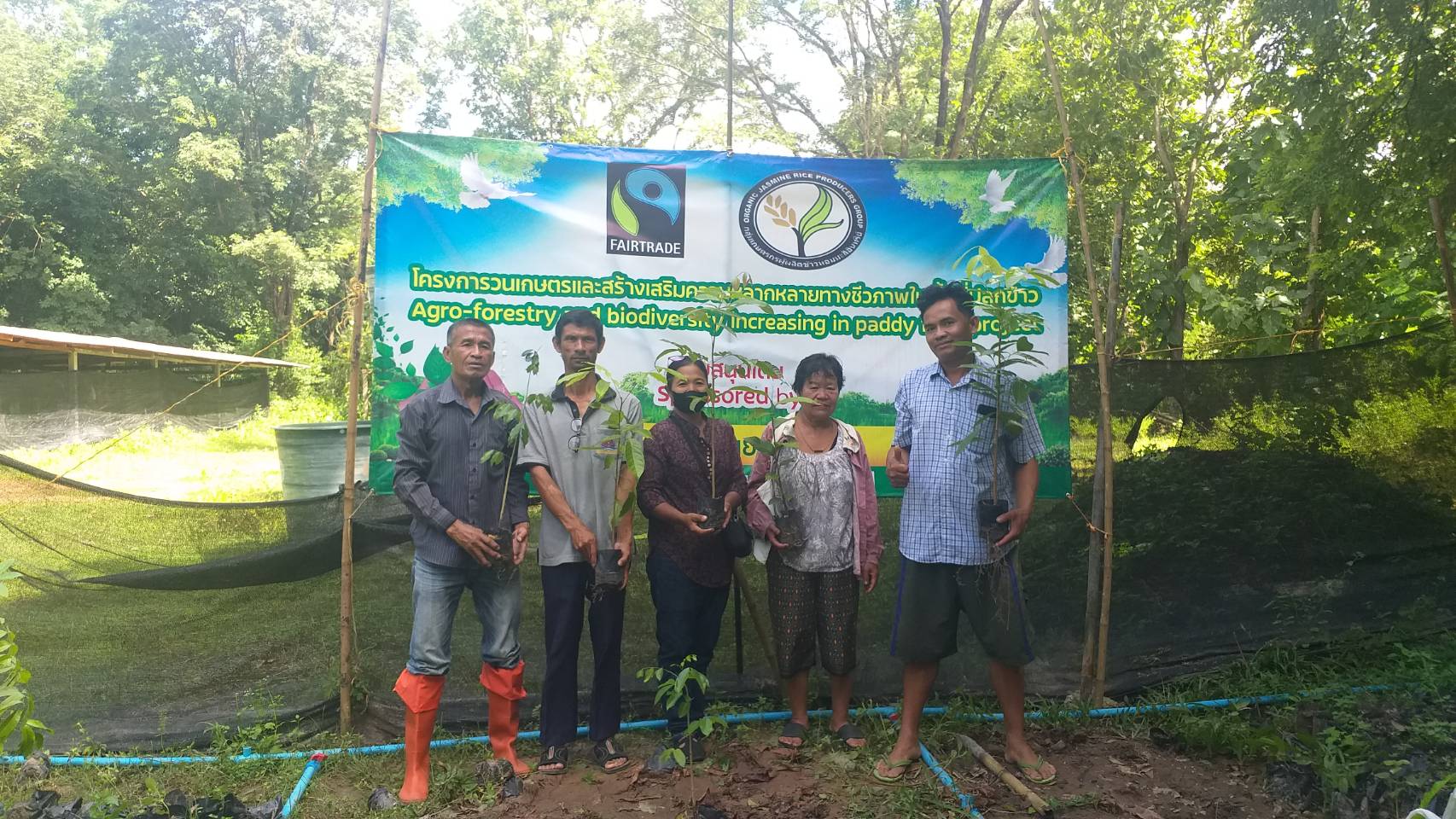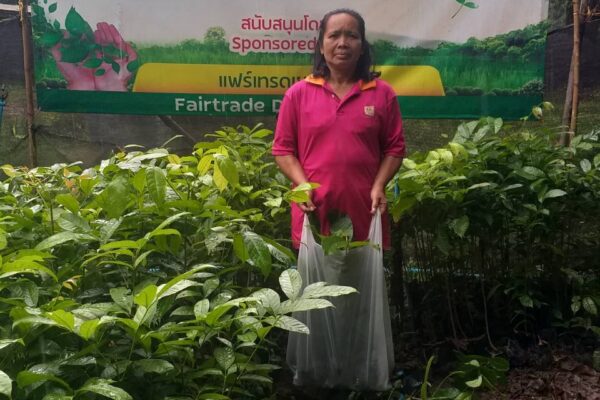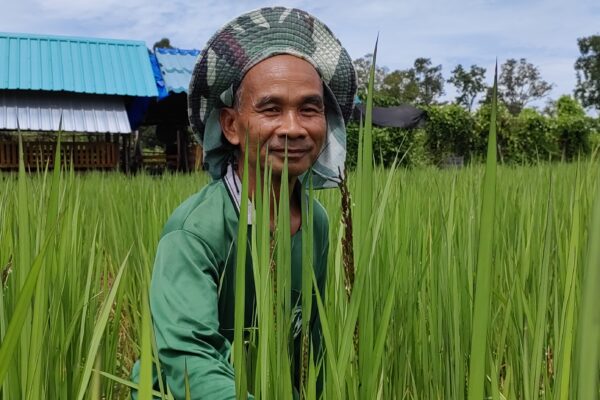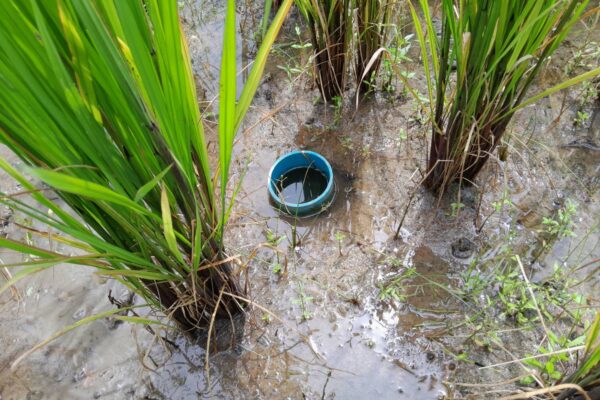Embark on a journey where the echoes of nature intertwine with a mission to combat the shifting tides of our climate! As the world grapples with escalating global temperatures, the consequences reshape our lives, starting from unpredictable weather, transformed landscapes, and a surge of extreme events. In response, Fairtrade NAPP organized the Biodiversity and Agroforestry in Paddy Field project for 378 producers of Organic Jasmine Rice Producer Group. This initiative not only aimed to raise environmental awareness but also to promote and support the participation of farmers and communities in taking care of environmental conservation understand the process of coexisting with nature able to take advantage of nature appropriately.

The project constituted of various activities including the meticulous collection of diverse seeds, including yangna, mahogany, and takhian to support a rich variety of forest trees. It also included planting material preparation such as creating a porous potting medium for optimal drainage and aeration, ensuring robust seedling growth. In addition, the mushrooms spawn was installed into the seedlings after 3 months of cultivations. The final step involves distributing these nurtured seedlings to farmers to enable them to further cultivate and contribute to the project’s flourishing ecosystem.
The project guarantees an environment conducive growth by employing nursery bags of 2*6 inches of size, coupled with nurturing elements such as decomposed rice husks, manure, and loose soil for each 20,000 plant seedlings cultivated by the organization. These plant seedlings encompass various indigenous varieties including yangna, takhian, chik, mahogany, support, teak among others. Seasonal fertility is heightened through the infusion of various blossoming mushrooms, contributing to the natural and cyclic nourishment of the burgeoning seedlings.
The project’s impact had a profound impact on the producers. Each tree planted acts as a silent champion by absorbing an average of 9-15 kg CO2 annually. Beyond the ecological benefits, it acts as a natural air conditioner while contributing to the global effort to combat warming. Additionally, these trees serve as vital watersheds and habitats for diverse wildlife. The project’s multifaceted benefits extended beyond by generating income through wood sales, providing shelter. It also created a symbiosis relationship with the mushroom plantation for robust tree growth and resilience against diseases. Moreover, fungi play a crucial role in moisture retention by creating a nurturing environment around the roots of living plants.







